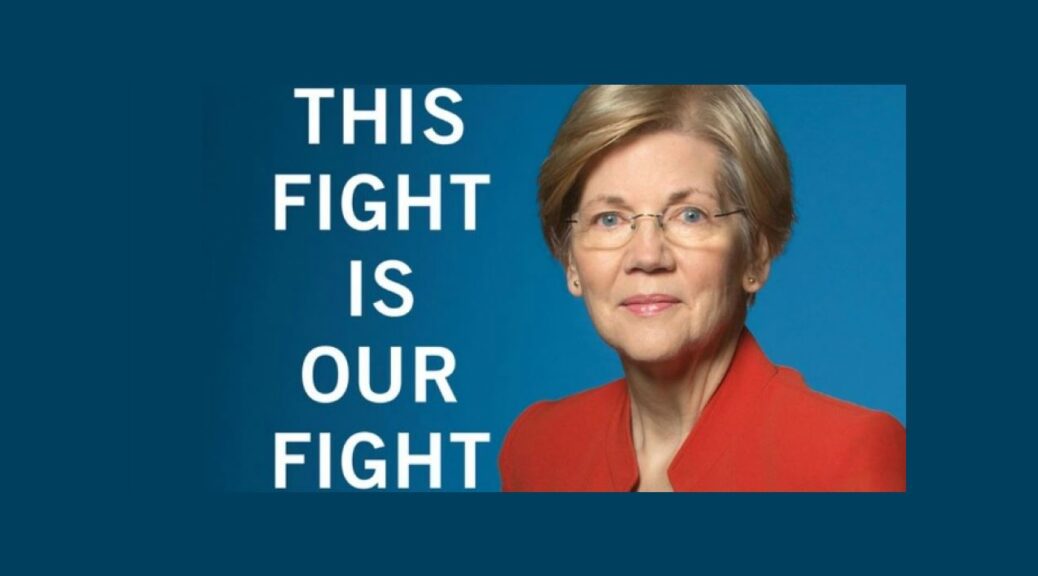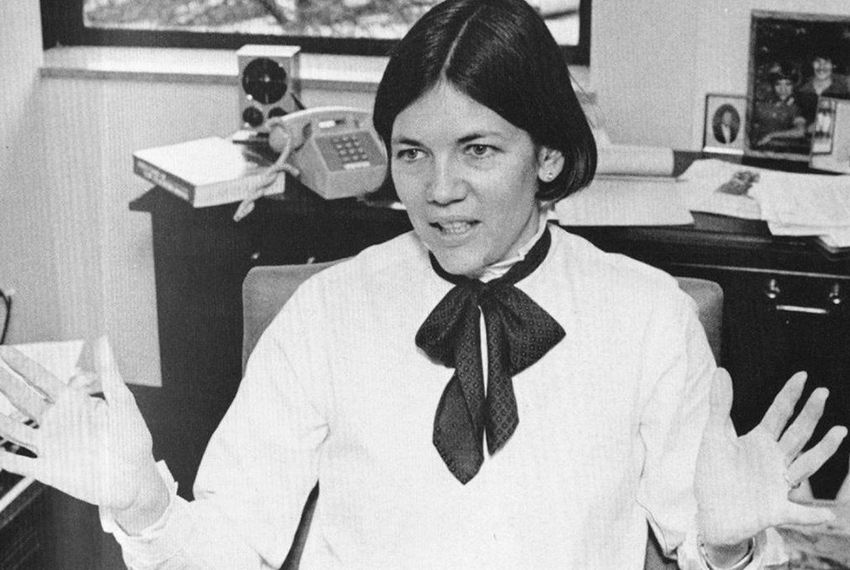
Great Book, Inspiring Author
Elizabeth Warren highlights some incredibly important points relating to economic inequality, poverty and beyond. I really love Elizabeth Warren’s passion contra poverty in one of the richest countries in the world and this book centres around that topic extensively. Better than “Nickled and Dimed” which is a 90s classic, This Fight is Our Fight is kind of an invitation to swim against mighty economic currents. Or at least, think about the downsides of capitalism. And perhaps the immutable reality that success begets success and failure (without learning) = more failure. The core problem that I see is that poverty is in its extremest form life limiting. While this topic is wildly more complicated than language can convey, it is near impossible to disagree with the idea that when equality of opportunity is reduced, the GDP of the entire planet is reduced. Everyone should get a fighting chance at success, however they personally define it. Certainly, the story of Elizabeth Warren‘s upbringing should have readers draw the conclusion that poverty restricts opportunity. At the same time, she’s a direct example of herself succeeding despite and perhaps motivated by that poverty. Anger, for lack of a better term, is good. And her voice is a powerful and credible one in a network of ideas that she hopes to coordinate for her run in 2020. Poverty after all, sucks.
A Background in Financial Poverty, Fighting Spirit Is Inspiring For Everyone
 Elizabeth grew up wearing plastic bags for shoes, living in a house where the carpeting was broken apart and worn out. Her experience of poverty is shocking and tough to read. And she discusses it in depth. Some readers will be able to recognize that level of poverty, however most people probably did not wear plastic bags for shoes growing up. No matter what you’re own background, it’s a pretty remarkable level of poverty that Elizabeth endured. Born Elizabeth Herring, Warren’s mother worked at Walmart, which Warren – is quick to point out – is now a huge conglomerate worth billions of dollars. Her mother was paid a really low amount there. Elizabeth Warren made the mistake, in her own summation, of marrying early instead of going to school. However, she was able to get the education (through night school) to validate natural or environmentally induced intelligence and by not turning to drugs, being curious, moving to where the actions at, she was able to kick ass. So in effect, Elizabeth was actually very wealthy in spirit and through economic justice, that error of birth was corrected (maybe an interesting way to think about it)? Poverty made Elizabeth a fighter. Who knew? The government needs to be there for the right person, at the right time, at the right place, and also it’s still the individual that has to get up in the morning; no one will do that for you. It would be cool if she addressed how important she, herself was to herself…in coordination with the support of others.
Elizabeth grew up wearing plastic bags for shoes, living in a house where the carpeting was broken apart and worn out. Her experience of poverty is shocking and tough to read. And she discusses it in depth. Some readers will be able to recognize that level of poverty, however most people probably did not wear plastic bags for shoes growing up. No matter what you’re own background, it’s a pretty remarkable level of poverty that Elizabeth endured. Born Elizabeth Herring, Warren’s mother worked at Walmart, which Warren – is quick to point out – is now a huge conglomerate worth billions of dollars. Her mother was paid a really low amount there. Elizabeth Warren made the mistake, in her own summation, of marrying early instead of going to school. However, she was able to get the education (through night school) to validate natural or environmentally induced intelligence and by not turning to drugs, being curious, moving to where the actions at, she was able to kick ass. So in effect, Elizabeth was actually very wealthy in spirit and through economic justice, that error of birth was corrected (maybe an interesting way to think about it)? Poverty made Elizabeth a fighter. Who knew? The government needs to be there for the right person, at the right time, at the right place, and also it’s still the individual that has to get up in the morning; no one will do that for you. It would be cool if she addressed how important she, herself was to herself…in coordination with the support of others.
Economic Injustice Or The Way Things Are Right Now, This View Needs Clarifying
 Warren’s mother working at Wal-Mart story is an interesting story; everyone knows someone who has been impacted by Wal-Mart. Wal-Mart is an excellent scapegoat for folks who are negatively effected by its success. And it is indeed a pretty fascinating story in American business and Sam Walton’s Made in America literally inspired Trumps Make America Great Again hats. Success for Wal-Mart has meant driving lower prices, greater economies of scale and consolidating mom & pop operations throughout the US. That’s a mixed outcome for sure.
Warren’s mother working at Wal-Mart story is an interesting story; everyone knows someone who has been impacted by Wal-Mart. Wal-Mart is an excellent scapegoat for folks who are negatively effected by its success. And it is indeed a pretty fascinating story in American business and Sam Walton’s Made in America literally inspired Trumps Make America Great Again hats. Success for Wal-Mart has meant driving lower prices, greater economies of scale and consolidating mom & pop operations throughout the US. That’s a mixed outcome for sure.
On the one hand, you have to admit that $4.97 kitchen utensils is kind of amazing for customers; who get the most value out of Wal-Mart not even the CEO gets as much value as customers (in aggregate). CEOs typically only get about 1% of the total revenue that they orchestrated. And also, consider how executive compensation works, you’d be insane to work at Wal-Mart if a similar role paid more for the same amount of work. On the other hand, the actual low function roles of stocking shelves, directing customers to the checkout etc etc, are paid not so well…it’s a frustrating reality! Salary capping would likely led to creative ways of rewarding C-suite executives so the reality is success rewards the successful over time. Would customers like to pay $6.97 for utensils or $4.97? Salaries are expensive and the value that Wal-Mart brings is mostly in low prices, democratizing the utensils! Everyone can afford them.
While reality is more complex, the fact that Warren’s mother was poorly paid is a kind of injustice; being paid to work while others sit planning operations, increasing shareholder value over employee value, it does (on the surface) make for a very compelling story. Why should someone, who’s parents paid for school no doubt, get paid more than someone who didn’t get the education needed to progress? I guess being intellectually free means releasing your mind from ideology, which means you can consider the reality of scarcity in economic terms…the way things are now, not the way we want creatively imagine things should be without doing the hard math and the dismal economics. Thinking freely, you have to then ask what are the available/future solutions against low wage employment? Did Elizabeth Warren’s mom consider moving to another town to get a better job? Yes, but she made other choices. Schooling? Not something she pursued. So, if the solution Warren proposes is to hinder innovation and economic development, then we have to be honest about hindering innovation and economics development have hidden costs. Why should civil servants decide which businesses thrive and which die? Does it have to be that businesses are bad, and workers are good? Sometimes this book reads that way. A thriving middle-class creates the customers that Wal-Mart needs, the job creators aren’t just the entrepreneurs but the middle class people themselves so it’s important that Sam Walton and others not forget who is the real job creator (alongside the entrepreneur). Honestly, I was a bit surprised that Elizabeth’s solutions are lacking in depth perhaps because lawyers aren’t in the creative problem solving business (my stereotypical: on-a-bell-curve-average) OR more probably because she needs to stay strategically vague (constructively-ambiguous) on policy so that she can campaign in 2020 without giving away her negotiation positions upfront, too early.
Side Note: I can still enjoy her message without agreeing with everything right? And I should be allowed to point out that it’s lacking in certain areas? Well, political parties do not allow you to criticize the boss. I however am intellectually free.
Emotional Power, Maybe a Bit Much, Though?
 If you don’t at least tear up reading this book, you have no soul. But if you don’t start getting concerned about the repetitiveness on stories of poverty no matter how gripping, you have no clue. I mean, if you want to run for president, where is your foreign policy, your policy on NAFTA? etc. And so we have to ask a critical question which is whether Elizabeth Warren is being too-one-note in her storytelling? Of course, she’s running in 2020. Does this book detail policy objectives? Heck no! Watching Warren grilling a Wells Fargo CEO or a captain of industry, is cathartic and entertaining but perhaps a little bit over dramatic. Just a bit. This book is an extension of those Senate hearing that show-case Warren’s demonization of the big bad corporate bureaucracy, and the complacency of the upper middle class when it comes to how (some) companies* create value.
If you don’t at least tear up reading this book, you have no soul. But if you don’t start getting concerned about the repetitiveness on stories of poverty no matter how gripping, you have no clue. I mean, if you want to run for president, where is your foreign policy, your policy on NAFTA? etc. And so we have to ask a critical question which is whether Elizabeth Warren is being too-one-note in her storytelling? Of course, she’s running in 2020. Does this book detail policy objectives? Heck no! Watching Warren grilling a Wells Fargo CEO or a captain of industry, is cathartic and entertaining but perhaps a little bit over dramatic. Just a bit. This book is an extension of those Senate hearing that show-case Warren’s demonization of the big bad corporate bureaucracy, and the complacency of the upper middle class when it comes to how (some) companies* create value.
Credit card companies, banks etc….provide a service and some executives do not handle that relationship well, according to Warren but it definitely takes two to tango. Let the buyer of the credit card beware…. Complicating to give people agency over their own lives, Mrs Warren.

Bill Gates Joke and How Averages Are Deceiving
Warren has a very hilarious quote: What happens when Bill Gates walks into Moe’s tavern? Congrats, on average, the patrons of that bar just got 51 billion dollars richer! The truth about averages is they are misleading and can potentially mislead in negative ways that aren’t anticipated. You can say that on average American standard of living is getting better but real wages have been static. The truth is that many people aren’t getting the benefits according to the data Warren is looking at from 2015 backwards. Warren’s point is that people are hurting a lot more than is measurable in anecdotal stories. It does sometimes sound like envy actually but that’s tolerable. What Warren is missing is the perspective of business and value creation. Like the guy who invented the latest product, she would likely say why can’t he share most of his wealth with his employees…the truth is that most of the wealth of a new widget go to the customer through it’s usage. Founders usually only get 1 or 2% of the wealth created from the idea they create. You could say, yes, well that was not created in a bubble, yes, but that entrepreneur did create and then capture that value….without him or her, there is no value…See…it’s complicated. Warren neglects to mention that Bill Gates is responsible for the creation of a tiny little company you might have heard of called….Microsoft…..and much of his assets today are being put to work as financial assets in the financial system and that financial system allocates such capital to maximize returns for the asset holder and in the process creates more wealth for other entrepreneurs who make things which in turn create new jobs….Yes, finance works best for those with existing wealth (capital) but that’s property rights for you. I get that not everyone can create a new valued business, so yes rebalancing is needed but don’t forget how the world actually is.
Warren on (FDR) i.e. Roosevelt, She Should Spend More Energy talking about the Benefits of Business (Small and Corporate)
 Elizabeth Warren looks at Franklin Delano Roosevelt and sees an amazing 3 term president. He was a great guy who thought about things in terms of benefiting both finance and the broader society and he is the model for Elizabeth Warren. I think that makes a lot of sense. However, it was an exceptional time in American history. In talking about FDR, she strongly implies that the economic prosperity that followed the new deal can be attributed largely to government Keynesian economics which is hard to know for sure. Why? Because there were many variables at play in the 1940s and 50s that led to American economic leadership on the global stage. In reality, it is more complicated than words can describe. There were entrepreneurs and American industry involved during the FDR era which Warren appears to massively downplay. The Ford motor company was a huge, literal, engine of growth, for example. Also, think about war and industrial build up.
Elizabeth Warren looks at Franklin Delano Roosevelt and sees an amazing 3 term president. He was a great guy who thought about things in terms of benefiting both finance and the broader society and he is the model for Elizabeth Warren. I think that makes a lot of sense. However, it was an exceptional time in American history. In talking about FDR, she strongly implies that the economic prosperity that followed the new deal can be attributed largely to government Keynesian economics which is hard to know for sure. Why? Because there were many variables at play in the 1940s and 50s that led to American economic leadership on the global stage. In reality, it is more complicated than words can describe. There were entrepreneurs and American industry involved during the FDR era which Warren appears to massively downplay. The Ford motor company was a huge, literal, engine of growth, for example. Also, think about war and industrial build up.
Entrepreneurship Happens When Motivated (both through Poverty or/and Opportunity), Warren Needs to Fix That Claim
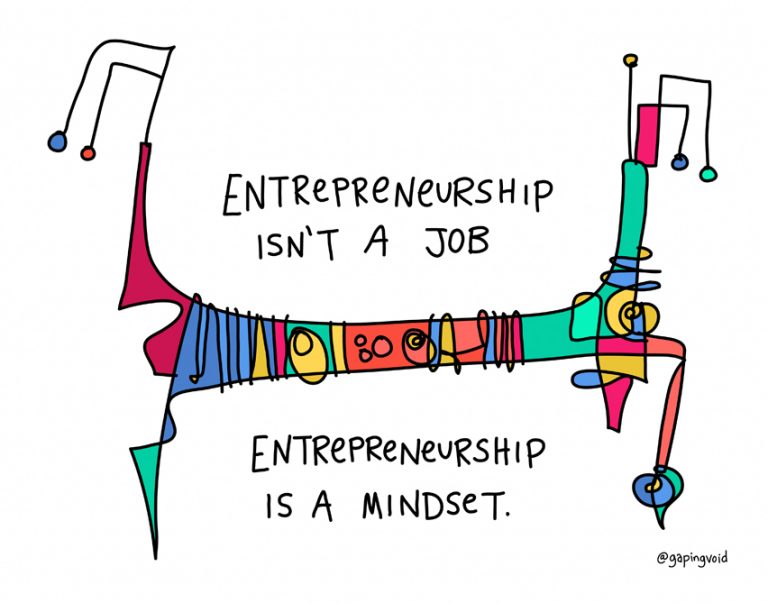 Warren is partisan in the sense that she assumes that, for example when the economy is good that’s when entrepreneurship happens. I think that is partly true but also entrepreneurship is increased when someone is unemployed and more people are unemployed when the economy is in a downward portion of the business cycle. New businesses occur more frequently when there aren’t easy jobs with great pay to be had. When the going get tough, the tough create businesses because they can’t find an employer. The opposite is also possible, when there is money to be made, people switch to their own businesses ideas. But on balance, it is more likely that entrepreneurship happens when a person can’t find a job, an immigrant that can’t get a job for example, is a budding entrepreneur because desperation (within reason) is a great motivator. Warren is an academic and the challenge with academics is they aren’t directly in touch with the world around them; they are more susceptible to confirmation bias, they are the most analytical people. And believe me, there’s a big difference between intelligence and analysis. Complicating this further is the fact that Warren is building her 2020 campaign with this book. So she can’t honestly be more balanced because she is trying to build a campaign around scapegoating the economic winners in America.
Warren is partisan in the sense that she assumes that, for example when the economy is good that’s when entrepreneurship happens. I think that is partly true but also entrepreneurship is increased when someone is unemployed and more people are unemployed when the economy is in a downward portion of the business cycle. New businesses occur more frequently when there aren’t easy jobs with great pay to be had. When the going get tough, the tough create businesses because they can’t find an employer. The opposite is also possible, when there is money to be made, people switch to their own businesses ideas. But on balance, it is more likely that entrepreneurship happens when a person can’t find a job, an immigrant that can’t get a job for example, is a budding entrepreneur because desperation (within reason) is a great motivator. Warren is an academic and the challenge with academics is they aren’t directly in touch with the world around them; they are more susceptible to confirmation bias, they are the most analytical people. And believe me, there’s a big difference between intelligence and analysis. Complicating this further is the fact that Warren is building her 2020 campaign with this book. So she can’t honestly be more balanced because she is trying to build a campaign around scapegoating the economic winners in America.
Deprioritizing Economics in Warren’s Political Preferences, It Should Be Addressed More Seriously
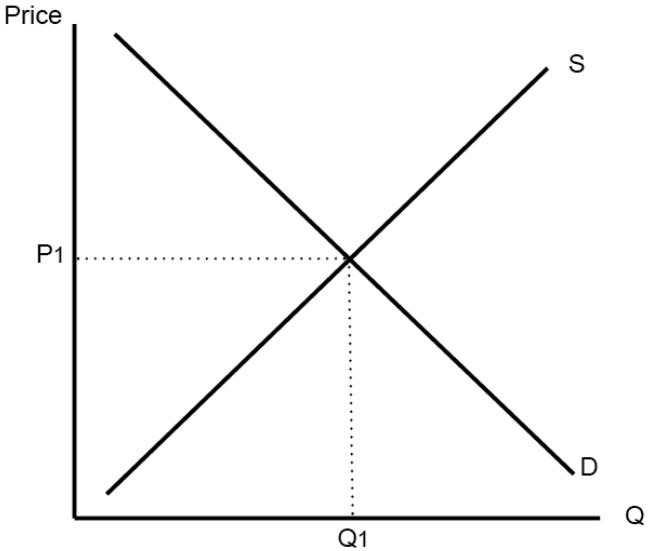 Warren seems to channel these compelling emotional stories of poverty in order to support a politically based argumentation. She doesn’t necessarily have solid solutions other than to increase regulation, it’s a tight rope because she wants to be president so what she spends more of the book on is about how abusive some businesses have been. Focusing on the abuses is cathartic and convenient as she doesn’t want to say what she would do as president just yet. But you can’t regulate human nature and our propensity to game the status quo. Politics is about pulling people behind your bandwagon; it’s persuasion and finding enemies that we can all smack down together. If you de-prioritize how economics works (or doesn’t work) then you will find Elizabeth Warren’s arguments a breath of fresh air, unmitigated by economic reality. And of course, reality can change over time. However, finance and accounting are honest reflections of reality for the most part. Artificially manipulating industry usually makes the economy less efficient unfortunately, increasing the cost of goods and services. At least that’s what’s happened in the past. The data can be manipulated to show the opposite but generally, we know that people are motivated by incentives that benefit them as individuals; sad but true. The problem is Warren is not an economist, she’s a commercial law professor, so that’s reflected here a little bit when she extensively highlights the story of poverty and almost no mention of the fact that most people have to make a living without government support in the business world (private sector). There are excesses, transgressions (of course, as long as there are human beings operating business, we should expect that) but most businesses are at war with their competition, it’s about the bottom line. While I have witnessed financial poverty as well as poverty of mindset, poverty has to be fought with precision not inexact redistribution of wealth. When and where the government should show up to help people in need is probably the biggest challenge of people who will live through the 21st century; Warren is pretty simplistic or unsophisticated in the solutions needed to get the right services to the right people at the right time or at least intentionally vague because she’s running in 2020, she’s negotiating with voters in this book, I believe.
Warren seems to channel these compelling emotional stories of poverty in order to support a politically based argumentation. She doesn’t necessarily have solid solutions other than to increase regulation, it’s a tight rope because she wants to be president so what she spends more of the book on is about how abusive some businesses have been. Focusing on the abuses is cathartic and convenient as she doesn’t want to say what she would do as president just yet. But you can’t regulate human nature and our propensity to game the status quo. Politics is about pulling people behind your bandwagon; it’s persuasion and finding enemies that we can all smack down together. If you de-prioritize how economics works (or doesn’t work) then you will find Elizabeth Warren’s arguments a breath of fresh air, unmitigated by economic reality. And of course, reality can change over time. However, finance and accounting are honest reflections of reality for the most part. Artificially manipulating industry usually makes the economy less efficient unfortunately, increasing the cost of goods and services. At least that’s what’s happened in the past. The data can be manipulated to show the opposite but generally, we know that people are motivated by incentives that benefit them as individuals; sad but true. The problem is Warren is not an economist, she’s a commercial law professor, so that’s reflected here a little bit when she extensively highlights the story of poverty and almost no mention of the fact that most people have to make a living without government support in the business world (private sector). There are excesses, transgressions (of course, as long as there are human beings operating business, we should expect that) but most businesses are at war with their competition, it’s about the bottom line. While I have witnessed financial poverty as well as poverty of mindset, poverty has to be fought with precision not inexact redistribution of wealth. When and where the government should show up to help people in need is probably the biggest challenge of people who will live through the 21st century; Warren is pretty simplistic or unsophisticated in the solutions needed to get the right services to the right people at the right time or at least intentionally vague because she’s running in 2020, she’s negotiating with voters in this book, I believe.
Warren Strongly Suggests Economic Inequality is a Zero-Sum Game, She Needs to Revise That View
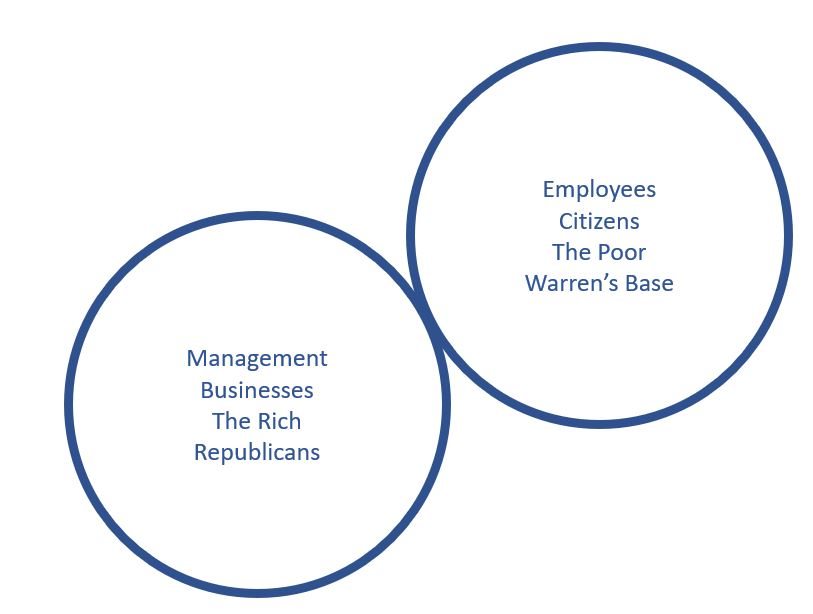 In order for business succeed, the poor have to fail, according to Warren’s more aggressive passages. In reality, the disagreement is to the degree to which banks should be restricted in terms of their practices of predatory lending. Well, what if banks didn’t lending at all? The act of a commercial bank to lend to someone is how money is ‘printed’ fun fact. They still have a critical duty of resource allocation in the economy. It is a very nuanced and a complex issue, which really requires policy tests, A/B testing regulation for banks; think like a scientist. Warren is kind of disagreeing with what I think is an empirical reality around the fact that the “proper allocation of banking resources and accountability towards those who are mathematical inclined to advance their own interests but then also advance the communities interests, is not a zero sum game.” Unfortunately Elizabeth Warren seems to think it is a zero sum game or have indications that that plays well to her support base. If Apple creates another iPhone, then does that wealth get distributed to customer’s who use that product as well as employees? I think so. Even if production is overseas? Yes.
In order for business succeed, the poor have to fail, according to Warren’s more aggressive passages. In reality, the disagreement is to the degree to which banks should be restricted in terms of their practices of predatory lending. Well, what if banks didn’t lending at all? The act of a commercial bank to lend to someone is how money is ‘printed’ fun fact. They still have a critical duty of resource allocation in the economy. It is a very nuanced and a complex issue, which really requires policy tests, A/B testing regulation for banks; think like a scientist. Warren is kind of disagreeing with what I think is an empirical reality around the fact that the “proper allocation of banking resources and accountability towards those who are mathematical inclined to advance their own interests but then also advance the communities interests, is not a zero sum game.” Unfortunately Elizabeth Warren seems to think it is a zero sum game or have indications that that plays well to her support base. If Apple creates another iPhone, then does that wealth get distributed to customer’s who use that product as well as employees? I think so. Even if production is overseas? Yes.
Credit Card Companies, An Easy Scapegoat for Elizabeth Warren, This View Needs More Nuance
 Credit card companies are providing a service but are misleading customer according to Warren. Warren points this out because there was so much profit being generated from credit card policies, credit card policies that were particularly not focused on making customers aware. She points out that it was almost impossible not to join that chorus of business people making so much money off of customers. You could not feasibly be an executive in a credit card company and argue against misleading customers in terms of interest rates (annual price rate) because you were undermining your own ability to accrue revenue from customers. I would say, it’s hard to say that customers aren’t completely oblivious to debt. So….we need to educate customers like we educate smokers with warnings. Then you can’t say we didn’t warn you about buying that boat on credit you couldn’t afford….right?Those warnings work for some subset pretty well right?? Hard to measure but anyway what if credit cards had the same warnings? What would that look like?
Credit card companies are providing a service but are misleading customer according to Warren. Warren points this out because there was so much profit being generated from credit card policies, credit card policies that were particularly not focused on making customers aware. She points out that it was almost impossible not to join that chorus of business people making so much money off of customers. You could not feasibly be an executive in a credit card company and argue against misleading customers in terms of interest rates (annual price rate) because you were undermining your own ability to accrue revenue from customers. I would say, it’s hard to say that customers aren’t completely oblivious to debt. So….we need to educate customers like we educate smokers with warnings. Then you can’t say we didn’t warn you about buying that boat on credit you couldn’t afford….right?Those warnings work for some subset pretty well right?? Hard to measure but anyway what if credit cards had the same warnings? What would that look like?
Just for fun:
 WARNING THIS CREDIT CARD CONTAINS FINANCIAL RISK
WARNING THIS CREDIT CARD CONTAINS FINANCIAL RISK
…is ProNerdster’s current suggestion (subject to feedback, hahaha)
- Interest and fees can add up quickly.
- Pay more than the minimum balance each month.
- Develop a budget to monitor and control your spending.
- Consider consolidating your debt to reduce the amount of interest you pay.
- Avoid taking out cash advances or using your credit card for gambling.
- Consider professional financial advice if you are having difficulty managing your debt.
- Avoid taking on more debt than you can comfortably repay.
- Be aware of the consequences of defaulting on your credit card payments.
Warren Misses A Better Solution for Credit Card Problems, FacePalm!
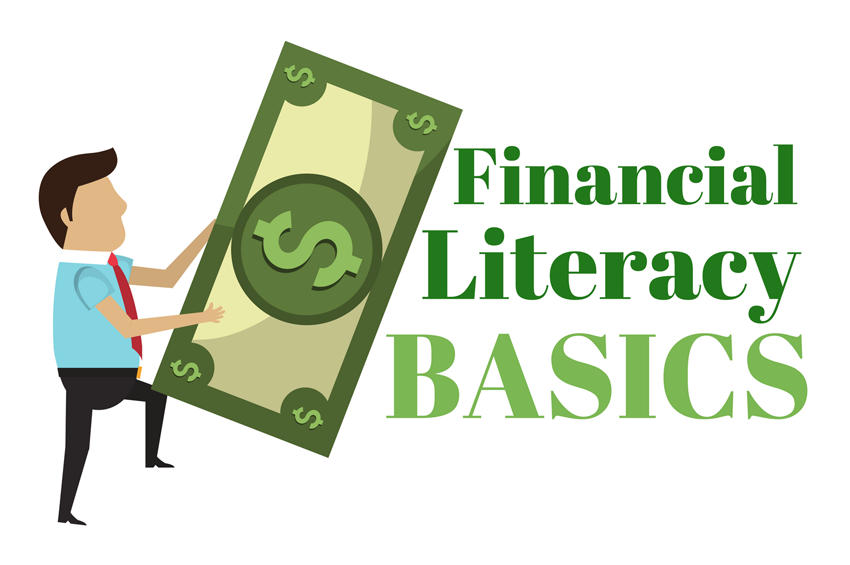 But what’s an obvious solution that Warren completely misses is….EDUCATION, EDUCATION, EDUCATION. Students in high schools throughout the US and Canada DO have to learn about the time value of money! Individuals should be better informed as part of the solution, not simply increasing restrictions on what credit card companies say and do. The fact that students aren’t learning about how finance and accounting work and then are getting credit cards, start businesses or work in government is a bit baffling. I mean, it’s obvious that teachers themselves might have difficulty teaching these concepts since they are focus on calculus for the 35% of students who pursue science, technology, engineering and math. However, much more important is finance and accounting than calculus? WAY MORE IMPORTANT, BUT IT’S TAUGHT IN A BORING WAY. Warren knows this, but this book is not about solutions I suspect as I’ve mentioned above…
But what’s an obvious solution that Warren completely misses is….EDUCATION, EDUCATION, EDUCATION. Students in high schools throughout the US and Canada DO have to learn about the time value of money! Individuals should be better informed as part of the solution, not simply increasing restrictions on what credit card companies say and do. The fact that students aren’t learning about how finance and accounting work and then are getting credit cards, start businesses or work in government is a bit baffling. I mean, it’s obvious that teachers themselves might have difficulty teaching these concepts since they are focus on calculus for the 35% of students who pursue science, technology, engineering and math. However, much more important is finance and accounting than calculus? WAY MORE IMPORTANT, BUT IT’S TAUGHT IN A BORING WAY. Warren knows this, but this book is not about solutions I suspect as I’ve mentioned above…
British Petroleum, Another Easy Scapegoat for Elizabeth Warren, This View Is A Bit Biased
 Elizabeth Warren makes an excellent point when it comes to the British Petroleum catastrophe in 2010 in the Gulf of Mexico. In this case, they had a bunch of fines from the federal government. What’s interesting about those fines ($7 billion in total) is that they were able to expense those fines. In other words those fines were tax-deductible from their total profit for the year. Remember that a tax deduction reduces the total amount of money in your pool of money that the government can then tax. So if I have $1000 profit and then bought a $200 car for my business, I can expense that so that I only have $800 of profit from which the government can tax me at the 25% rate. That means I pay $800 x 25% = $200 rather than $1000 x 25% = $250. So in essence, BP had a huge tax deductible amount in 2010. And BP is very powerful, they have connections in Washington and London.
Elizabeth Warren makes an excellent point when it comes to the British Petroleum catastrophe in 2010 in the Gulf of Mexico. In this case, they had a bunch of fines from the federal government. What’s interesting about those fines ($7 billion in total) is that they were able to expense those fines. In other words those fines were tax-deductible from their total profit for the year. Remember that a tax deduction reduces the total amount of money in your pool of money that the government can then tax. So if I have $1000 profit and then bought a $200 car for my business, I can expense that so that I only have $800 of profit from which the government can tax me at the 25% rate. That means I pay $800 x 25% = $200 rather than $1000 x 25% = $250. So in essence, BP had a huge tax deductible amount in 2010. And BP is very powerful, they have connections in Washington and London.
Money in Politics, Always A Bad Thing for Elizabeth Warren, That View Needs More Nuance
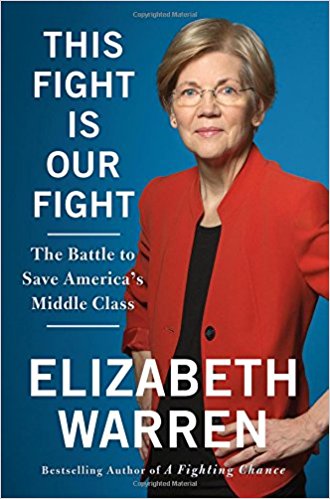 The solution should be for the best ideas to win regardless of where they come from. However, Warren is saying that the lobbyists in the House of Representatives and the Senate are gaining undue traction and affecting public policy with their commercial interests at the centre of decision making. Seems likely but she basically thinks that all lobbyists are a bad thing. Or at least her persuasion tactic is to convince her voting base to believe that all lobbyists are evil. However, she is downplaying the benefits of having lobbyists explain the details and nuances of technical policy to decision-makers in order to get the optimal decision for the best outcome for the economy/people. Of course, Warren might say the economy is rigged so that’s a complication. Lobbyist restrict the number of doctors in the market, thus increasing their salaries for example, particularly in Canada. We have to ask if it’s the actual structure of the lobbying is the problem or is she incorrectly attributing all lobbying as being bad or if she believes that the self interest of a single organization is a problem even though the self interest of an organization will obviously benefit the broader economy as well as the organization itself? What if the lobbyist is lobbying for something Warren supports? That’s when the rubber hits the road. The problem is that the lobbyists have run amok in her view and that might very well be the case however we can’t generalize all obvious as bad and all consumers is good. Also, what’s the solution?
The solution should be for the best ideas to win regardless of where they come from. However, Warren is saying that the lobbyists in the House of Representatives and the Senate are gaining undue traction and affecting public policy with their commercial interests at the centre of decision making. Seems likely but she basically thinks that all lobbyists are a bad thing. Or at least her persuasion tactic is to convince her voting base to believe that all lobbyists are evil. However, she is downplaying the benefits of having lobbyists explain the details and nuances of technical policy to decision-makers in order to get the optimal decision for the best outcome for the economy/people. Of course, Warren might say the economy is rigged so that’s a complication. Lobbyist restrict the number of doctors in the market, thus increasing their salaries for example, particularly in Canada. We have to ask if it’s the actual structure of the lobbying is the problem or is she incorrectly attributing all lobbying as being bad or if she believes that the self interest of a single organization is a problem even though the self interest of an organization will obviously benefit the broader economy as well as the organization itself? What if the lobbyist is lobbying for something Warren supports? That’s when the rubber hits the road. The problem is that the lobbyists have run amok in her view and that might very well be the case however we can’t generalize all obvious as bad and all consumers is good. Also, what’s the solution?
This book is a fundraising solution for Elizabeth Warren for sure!
Unions At the Negotiation Table, Sounds Good, Might Have Complications
Warren was arguing with that union leadership should be at the table (Board of Directors level) as well as the corporate executives. Add a 25% corporate representation versus some 75% union and community leadership representation. The reason she argues this is that you can be sure that the interests of American workers can be protected so that even while the cost of production goes up with wages that corporations can’t do anything about it. For example, the corporation will not be able to do foreign manufacturing in places like Mexico at $0.75 USD per hour. Trump’s position on manufacturing is certainly overlapping Warren here; so that might be a nullified issued if she is the Democrat nominee. Fun fact, sometimes union leaders do not really represent their members that well….
Other Interesting Ideas from This Fight Is Our Fight
- Walmart is being subsidized by tax payers because employees collect food stamps.
- Warren advocated boycotting companies like Nabisco that move their production to Mexico? (My thoughts: consumer coordination is pretty difficult in practice, i.e. the prisoner’s dilemma)
- Astro turf campaigns versus grass roots campaigns….an Astro turf campaign is when a politician is backed by big donors to basically do whatever they want versus grass roots campaigns that raise funds from many small donors; (My thoughts: clearly financing campaigns is pretty daunting in the US…should be a way to fund the best ideas, not the best politicians).
- Brookings Institution is a bad actor / think tank.
- “Corporate, corporations”; these are almost dirty words for Warren. Lady Justice can be bought by big business. (My thoughts: She’s too perfect an academic to make the mistakes that sometimes happen in business, sometimes irresponsibly, but more often because mistakes are part of innovation. It is indeed heart wrenching, and easy to point fingers from the side lines, when things go terribly wrong for example: GlaxoSmithKline heart attack deaths due to Avandia)
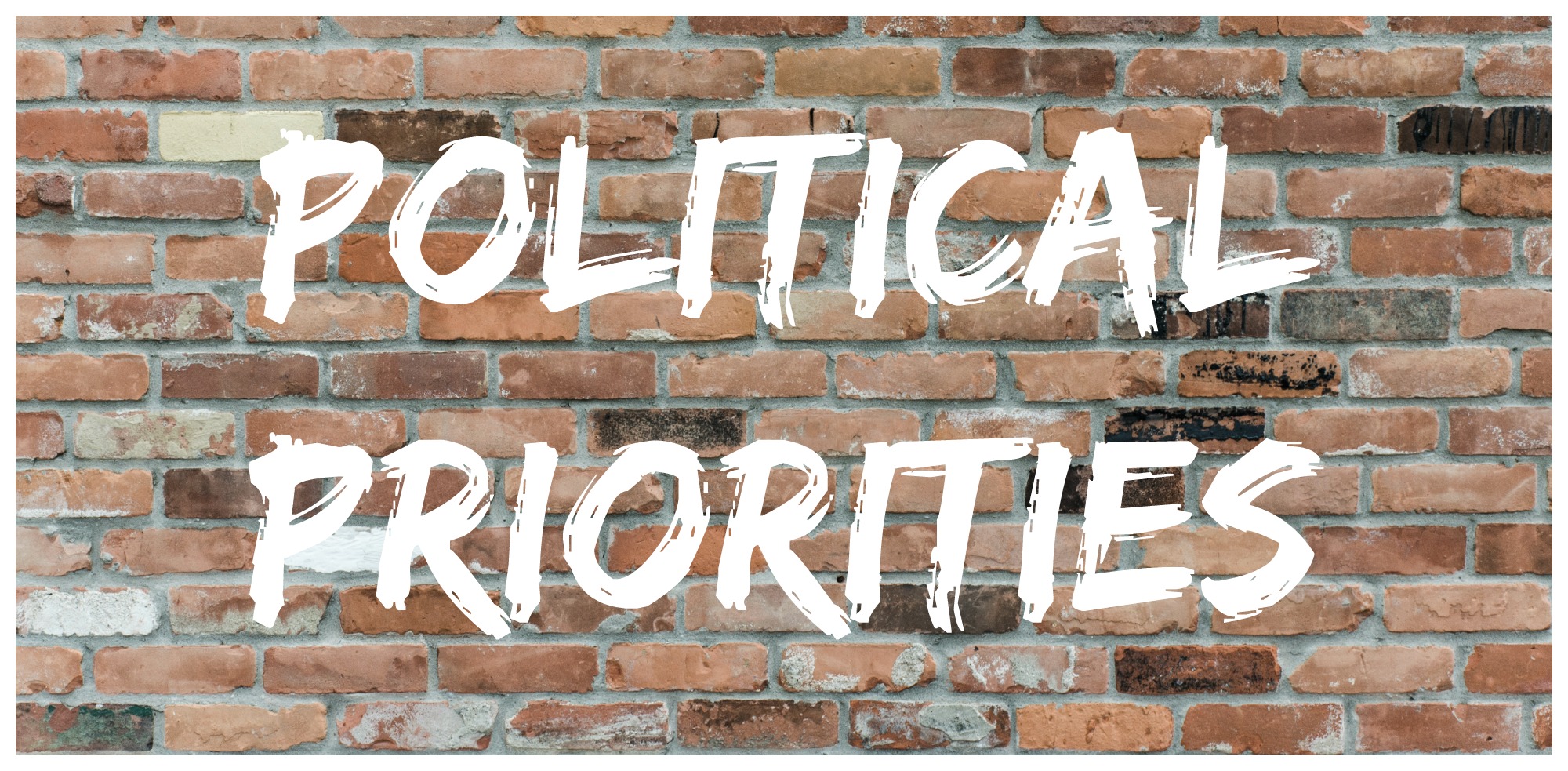
Warren’s Priority List (Probably):
- Poverty should be avoidable through government support (my thoughts: hard to disagree, but how, and to what degree? How precise? Do businesses help reduce poverty at all?);
- Prices are something that should be artificially adjusted by governments to help the poorest people (my thoughts: there are really bad hidden costs to restricting businesses like fewer jobs, less dynamic economy, less creativity / innovation, human nature is not as malleable as Warren wants it to be, how do you curb the excesses of capitalism without punishing good businesses as well?);
- Education is good but there also has to be stable jobs for people who are risk averse (my thoughts: yes, some people cannot survive in a competitive business world, so giving them easy jobs and good pay is a kind of social service, who pays for that though? To what degree? Through tax revenue, there must be a better way, test out solutions!);
- Businesses are self-interested and do not care much about their customers (my thoughts: I don’t think that’s really true, it only looks like that when a customer gets a raw deal, it’s easy to point out horror stories because they are memorable and heart wrenching; it doesn’t mean they are the reality for most people);
- Hidden costs of higher taxes aren’t as important as helping the poor directly (my thoughts: it’s the job of the children of babyboomers to solve this problem, it’s complicated and involves a more scientific way to deliver public services);
- Great economic growth should be sacrificed because the benefits to the poorest are more important than those who struggled and then successfully created new business and new economic activity (my thoughts: hard to agree, if we focused all resources on the poorest people, then we would be under-serving the people who can create more tax revenue who then contribute to the tax revenue needed. It’s complicated!).
Final Grade
-A
Elizabeth Warren is an awesome voice, pay attention, she may be President one day!

